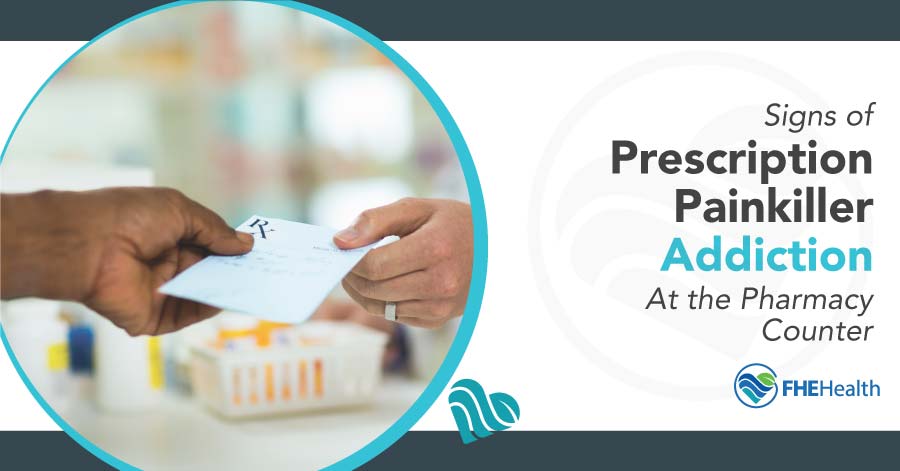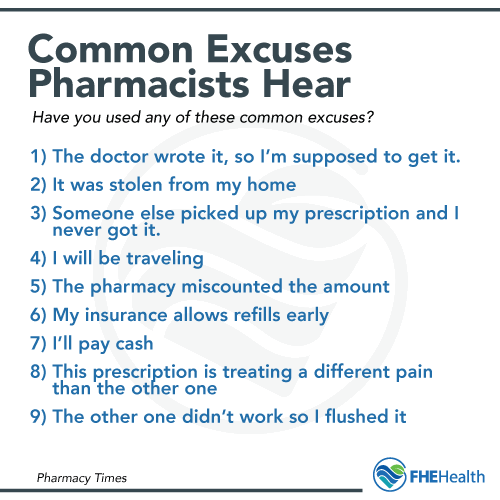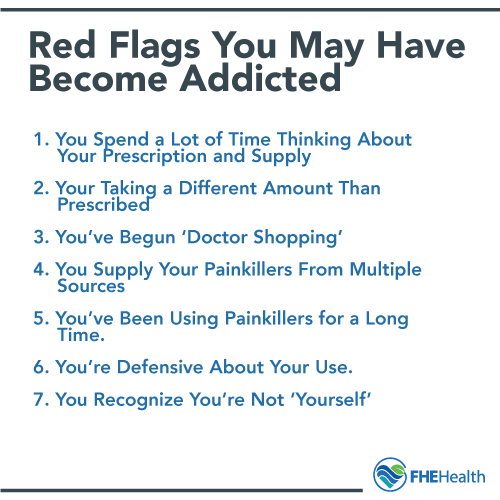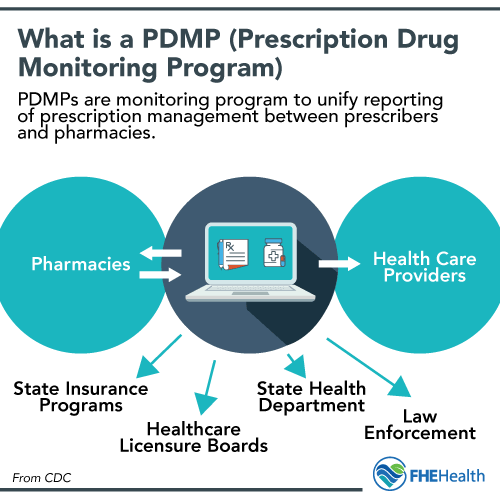
America’s opioid crisis has been publicly linked to prescribing practices, highlighted by such statistics as this one: Between the early 1990s and mid-2000s, opioid prescriptions increased by a factor of five, despite patients reporting a similar level of pain.
These numbers struck outrage and led to policy change. After new regulations on opioid prescriptions were introduced, there was a 19% reduction in new annual prescriptions written for these highly addictive painkillers.
While the supply side — the number of prescriptions being written — got the most focus when it was revealed that prescription drug use played a large role in the rash of overdose deaths, there’s a concerning issue on the demand side as well: When someone misuses any drug, even when it seems harmless, it could be a sign of addiction.
Here’s how to tell if you or someone you know is developing a problem with an opioid prescription, what it means when you’re constantly coming up short and how policymakers have been taking steps to limit prescription painkiller abuse.
“I Keep Running Out of My Painkillers”
For someone experiencing severe pain, a prescription to an opioid pain reliever — Percocet, Vicodin, OxyContin, for example — can seem like a blessing. You keep taking them to avoid serious pain, and after a while, it becomes more normal to function this way.
The problem? If you don’t stop taking these drugs, you won’t be able to tell if you still need them. They’re highly addictive, so you can become physically dependent after less than a month of taking them even when they’re necessary.
Why People Start Seeking Frequent Refills
 As your brain grows accustomed to the drugs, the effects become weaker. This leads many users to start taking more than the recommended dose to get the same rush that they were getting before. This inevitably leads to their prescription running out earlier than planned.
As your brain grows accustomed to the drugs, the effects become weaker. This leads many users to start taking more than the recommended dose to get the same rush that they were getting before. This inevitably leads to their prescription running out earlier than planned.
This could lead to opioid users using any claims necessary to get a refill earlier than their prescription allows, meaning that pharmacists have to be wary of a wide range of potential excuses.
Why is this common? Most likely, it stems from one of the largest misconceptions about prescription drugs. People think that if a doctor prescribes something, it must be completely safe.
To see why this is wrong, we only need to look at some of the lawsuits currently happening from coast to coast over the damage caused by opiate drugs. Perhaps the most public and notable surround the countless accusations that Purdue Pharmaceuticals, maker of OxyContin, capitalized on false claims that the drug wasn’t addictive.
In reality, OxyContin and drugs like it were the primary reason for the fact that, between 1999 and 2017, over 215,000 people died of overdoses of prescription drugs.
What To Remember: Look Out for Red Flags
 It’s natural to think of yourself as exempt from a crisis like the prescription opioid epidemic. After all, only other people become addicts, right? Actually, it’s easier to get addicted to opiates than you might think, and addiction doesn’t discriminate.
It’s natural to think of yourself as exempt from a crisis like the prescription opioid epidemic. After all, only other people become addicts, right? Actually, it’s easier to get addicted to opiates than you might think, and addiction doesn’t discriminate.
Today, it could be innocent, but tomorrow, it could be deadly. In addition to that high number of overdose deaths from prescription drugs, another study over a similar time period found that 3 out every 4 new heroin users abused prescription opioids in their pasts.
It’s important to look out for the red flags of painkiller abuse, whether it concerns a friend, a loved one, family member or even your own habits. Remember that these prescriptions are not written at random. The length and number of refills your prescription allows are based on the professional expertise of your doctor, and under no circumstances should you deviate from your prescription without first getting clearance from a physician.
It may be worth taking an occasional step back and remembering that this prescription was written with your health and best interests in mind. Remember that your doctor is balancing these volatile drugs’ ability to provide relief with their addictive qualities; to interrupt this balance could be dangerous.
Laws and Regulations Limit Access to Opioids
Today, there remain stringent policies aimed at limiting the overprescription of these drugs, including federal and state regulations to ensure that everyone is compliant and patients don’t have more control over their prescriptions than needed.
Since 2007, drug prescriptions have decreased, due primarily to new state and federal regulations. For example, some states have laws in place that don’t allow a person to refill a prescription more than five days early. Some states don’t allow an early refill at all.
States are now more closely following the Centers for Disease Control and Prevention’s guidelines for safe prescribing. Prescriptions written for patients with acute temporary pain are now as low as 3 to 5 days in some states.
Essentially, on both the supply and demand sides of the market for prescription painkillers, laws have been put in place to limit the access patients have to these drugs, in turn limiting the opportunity for a potentially dangerous addiction to them.
But there’s one more issue: How can states and local jurisdictions ensure that everyone is following these rules, knowing that the laws are making it harder for pharmaceutical companies to create profit? That’s where PDMPs come in.
PDMPs
 Prescription Drug Monitoring Programs, or PDMPs, are a way in which a local or state government can have much-needed oversight of the way doctors and pharmacies in the area handle these addictive pain relievers.
Prescription Drug Monitoring Programs, or PDMPs, are a way in which a local or state government can have much-needed oversight of the way doctors and pharmacies in the area handle these addictive pain relievers.
Explained in detail here by the CDC, PDMPs have the potential to give providers access to information that would improve prescribing behavior, as well as let other entities like insurance providers, law enforcement and state medical boards have oversight of the process as well.
PDMPS give practitioners better insight into their patients, looking at what they need, how long they need it and the potential for the type of painkiller abuse that is likely to become an addiction in time.
Many PDMPs are still in the pilot phase of their rollout, but it’s not inconceivable to think that most cities and institutions will be using something similar to try to reverse the damage done by years of loose restrictions and overprescribing of these highly addictive drugs.
Prescription Opioid Treatment at FHE Health
FHE Health is proud to offer patients relief from a variety of addictions, including to prescription painkillers. If you or a loved one has an issue with prescription drugs, waiting and hoping it will change is the wrong call to make when lives are on the line.
Here’s a brief overview of what to expect in a treatment program for opioid pain relievers specifically. Call FHE Health today and learn about every option available to you.






